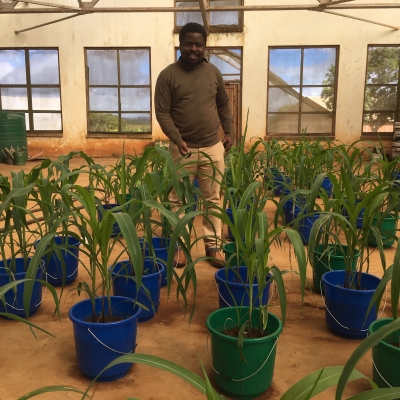Phosphorus (P) is a key element needed by crops and most is applied in the form of inorganic fertiliser derived from mined phosphate rock. There is a global challenge in terms of access to P reserves and therefore is a great deal of effort is being aimed at recovery of phosphates from renewable sources. In Sub-Saharan Africa (SSA) the challenges in sourcing P to meet crop demand is even more challenging due to increasing fertiliser prices, supply coming from only certain hot spots and reduced opportunity for renewable sources. However, there is untapped potential, if implemented properly, from the sanitation sector.
The current PhD project will explore the quantities of P imported, used, generated and disposed of in Malawi to increase resilience in agriculture by utilising available renewable sources. This will entail determining the mass flow of various sources of P in Malawi and will involve carrying out field trials using renewables sources of phosphorus such as compost from municipal waste and sewage sludge and crop residues.
The aim of the project is to understand the changes and availability of P from different recycled materials in different soils and assess its bioavailability for optimum plant growth and productivity in Malawi:
- To characterise and quantify sources, flows, and sinks of phosphorus in Malawi to determine options for waste minimization, recovery potential, and chemical fertilizer reduction;
- To evaluate phosphorus mineralisation from different recycled sources at key crop growth stages in different soils;
- To determine the efficiency of crop phosphorus use;
- To evaluate the impact of using recycled fertiliser products on soil health status, water and crop yield.
Benefits
- A systematic mass flow analysis of P in Malawi to optimise its use in agriculture and minimise negative effects to water quality.
- Increased reliance on renewable sources of P in agriculture.
- Increase in soil organic matter and soil fertility in key agricultural locations in Malawi.
- Improvement in sanitation due to better valorisation of faecal matter as a fertiliser.
